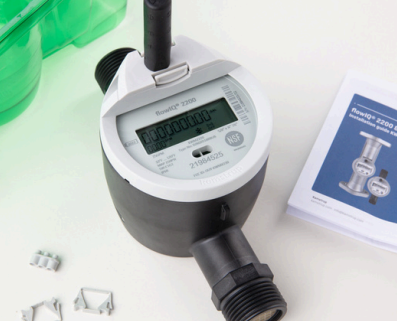
City of Clemson // Courtesy
The initiative to replace the meters began Monday, Sept. 8, and will last six months.
On Sept. 8, the city of Clemson began an infrastructure project to replace the approximately 9,000 residential water meters in use within city limits. The project is expected to take approximately six months to complete.
“The City’s Utilities Department, in partnership with Concord Utility Services, will install advanced Kamstrup ultrasonic water meters for all residential water customers,” an announcement on the city’s website says.
Residents’ bills will not see any extra charge for this new meter.
The new water meters in use are the Kamstrup flowIQ 2200, produced by the Kamstrup corporation, a Danish producer of metering devices for water, heat, electricity and cooling systems.
The flowIQ 2200 is the first residential smart water meter that “comes with integrated communication that allows for safe and easy remote reading via either drive-by or network,” Kampstrup’s website states.
The city claims that the new meters will bring “enhanced accuracy, proactive leak detection, improved customer service, sustainability, efficiency and convenience.”
Contractors from Concord Utility Services will undertake replacements of the meters. The replacement process will disengage water service to residential households.
“Our Kamstrup smart meter project represents a significant step toward modernizing our water infrastructure,” Benjie McGill, the city of Clemson’s utilities director, told The Tiger in an interview. “These new ultrasonic meters provide unparalleled accuracy, allowing us to proactively detect leaks and reduce water loss across our system.”
The flowIQ 2200 has a multitude of features, including integrated acoustic leak detection. This allows the meter to identify leaks to a customer as well as the city through a distribution network.
“This feature reduces water loss and helps customers avoid high bills from undetected leaks,” McGill said.
Another value McGill mentioned is that the meters will more accurately bill residents for their water usage. More precise billing will provide support for conservation efforts by reducing the amount of nonrevenue water produced.
“The new Kamstrup meters are more cost-effective than the meters we are currently using, and the battery life is twice as long as the current residential meters, which will help us to reduce future operating costs,” McGill continued.
Other details the city included was an information packet from Kamstrup, frequently asked questions and answers, information on Kamstrup and Concord utilities and a video from Concord on repair procedures.